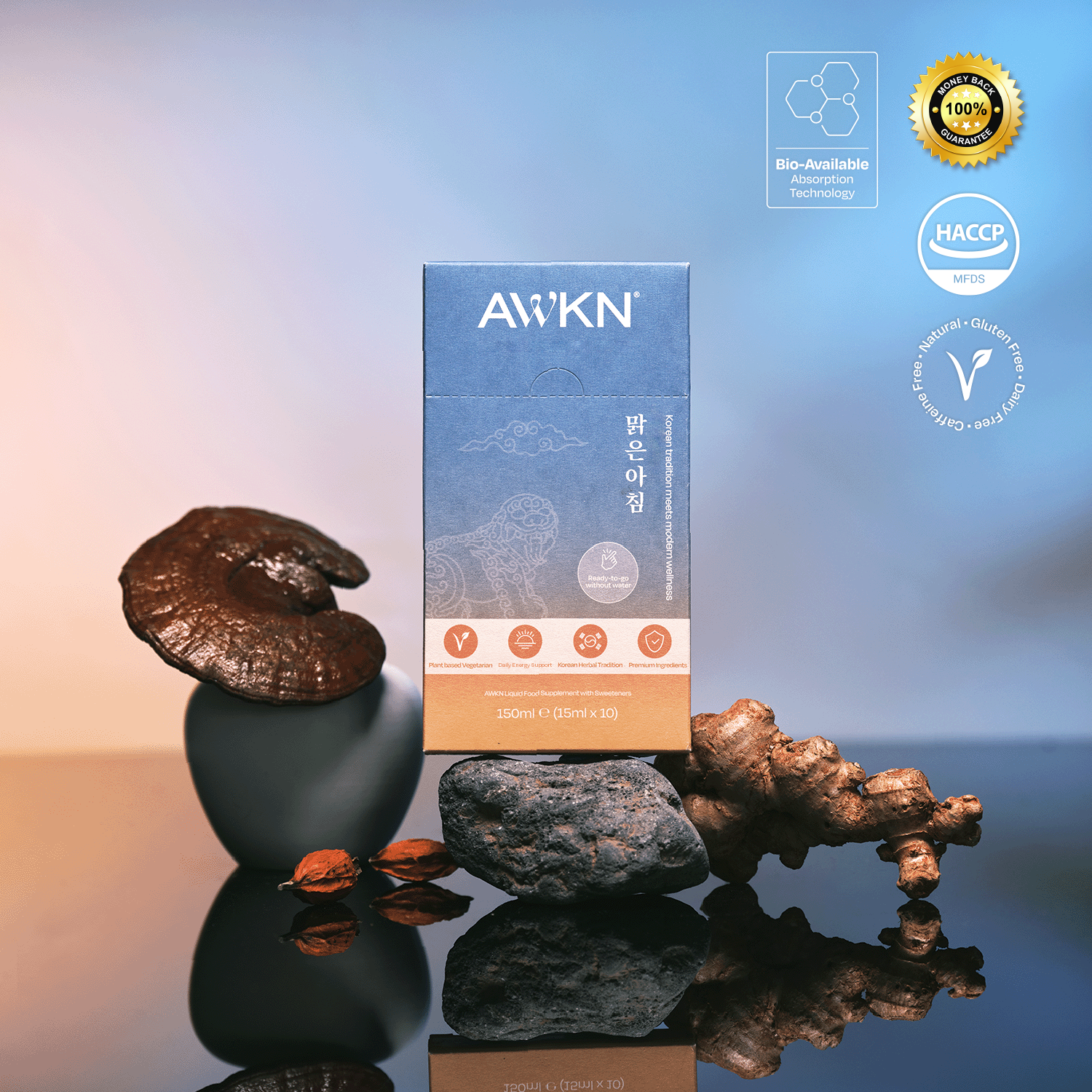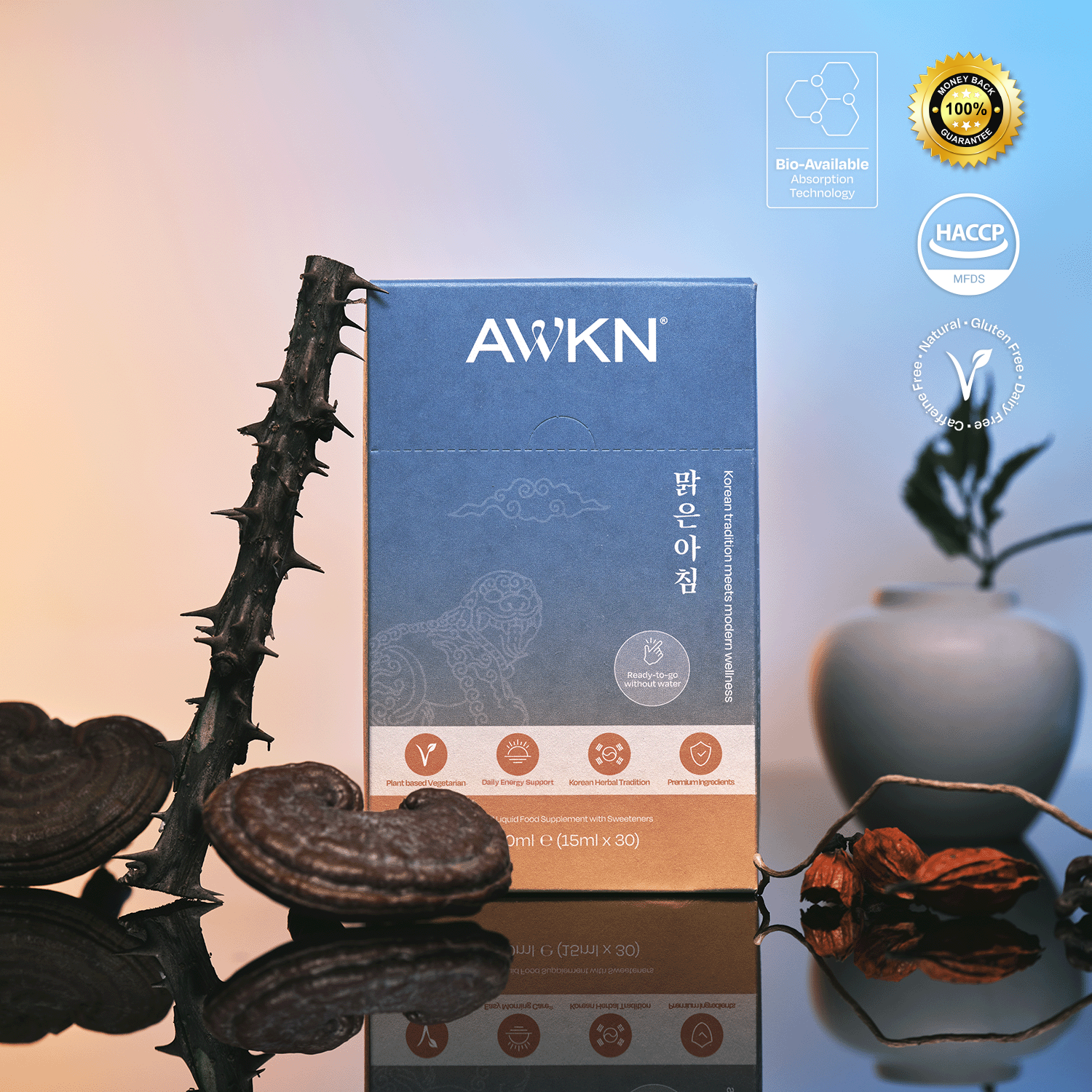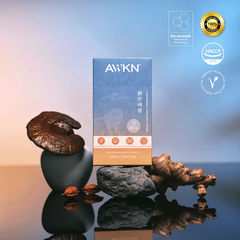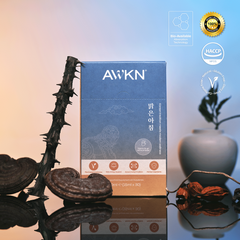How to Prevent a Hangover: 5 Ways to Avoid Post-Alcohol “Hell”
The fun of a great night out can quickly turn into the misery of a hangover the next morning. It happens to the best of us. The headache, nausea, fatigue, and regret can make you question why you ever picked up that drink in the first place (and swearing you’ll “NEVER” drink again!)
But what if you could help to avoid that post-alcohol "hell" altogether? Getting your body strong and preparing it for metabolising alcohol is the best way to help prevent a bad hangover. In this blog, we’ll walk you through 6 effective ways to prevent a hangover, so you can enjoy your night without dreading the aftermath.
What Causes Hangovers?
Hangovers are caused by a combination of factors related to alcohol's effects on the body. These include dehydration, toxic byproducts of alcohol metabolism, and disruption of normal body functions. Mostly, the main culprits are dehydration (alcohol is a diuretic and makes you urinate more), the toxic compound Acetaldehyde (which overwhelms the liver and causes nausea), low blood pressure, and sleep disruption.
Other causes include:
- Inflammation in the body
- Congeners (which are harder for the body to metabolise)
- Overconsumption
- Gastrointestinal irritation
Dehydration & Its Role
Dehydration is the main cause of:
Headaches
Alcohol suppresses the hormone vasopressin (antidiuretic hormone), leading to increased urination and loss of fluids. The dehydration from this process causes a reduction in the brain’s fluid levels, which can lead to temporary brain shrinkage and trigger headaches. Blood vessels in the head may also constrict due to fluid loss, worsening the pain.
Fatigue and dizziness
Dehydration reduces blood volume, making it harder for your heart to pump oxygen and nutrients throughout your body. This can cause fatigue, weakness, and lightheadedness, which are common hangover symptoms.
Dry mouth and thirst
When you’re dehydrated, your body pulls water away from less critical areas, such as the salivary glands, to maintain essential functions. This leaves you with a parched feeling, a dry mouth, and an intense thirst when you wake up.
Nausea
Dehydration slows down digestion and reduces blood flow to the gastrointestinal tract. This exacerbates nausea and stomach discomfort caused by alcohol’s irritating effects on the stomach lining.
What does alcohol do inside your body?
When you drink alcohol, your body starts to do a series of things that impact your brain, your liver, and more. From the moment you take the first sip, your body starts to try to absorb the alcohol, quickly, through your bloodstream (and that only becomes quicker if you haven’t eaten enough) through your stomach and small intestine.
Next, the alcohol reaches your brain, which gives you that relaxing, euphoric (or giggly) feeling due to the dopamine release. As you drink more, things start to spiral (we’ve all been there):
- Impaired inhibitions
- Slurred speech
- Memory lapses (hippocampus suppression)
- Loss of motor control
Now the liver starts breaking down alcohol using the enzyme alcohol dehydrogenase (ADH). What is ADH? ADH plays a critical role in breaking down alcohol and turning it into acetaldehyde, which is a toxic compound. Most times, this step happens primarily in the liver, though some alcohol metabolism also occurs in the stomach (especially in men, interestingly).
Acetaldehyde is highly toxic and is quickly processed by another enzyme, aldehyde dehydrogenase (ALDH), which converts it into acetate. Acetate is then further broken down into water and carbon dioxide, which your body eliminates through urine, breath, and sweat. There’s no way to prevent the body’s natural processing of alcohol and the production of toxic acetaldehyde, but there are ways to lessen its effects and reduce its burden on your body. These are steps you can take to support your liver function, stay hydrated, and minimise alcohol’s overall impact (especially the next day).
6 Tips to Help Avoid A Bad Hangover
Stay Hydrated
The ideal prevention method is to stay hydrated all the time, throughout the days leading up to a night of drinking alcohol. But if you can, generally, the 1-for-1 rule is reliable. The 1-for-1 rule is one glass of water for every alcoholic drink you consume. It’s hard to remember sometimes, but try to order a glass of water with every drink at the bar.
If that doesn’t stick, just try to down as much water as you can before bed (obviously within reason)
Eat Nutritious Food Before Going Out
And, again, not just before, but throughout the day. Obviously, we suggest maintaining a nutritious, balanced diet all the time, but it’s easier said than done! If you’re reading this the day of your big night out, whether that’s a birthday, a wedding, a work night out, or just a casual Friday night, make sure you eat a nutrition-packed breakfast, lunch, and dinner.
What does that mean? Well, that means balancing macronutrients (protein, carbohydrate, and fat), and micronutrients (vitamins and minerals). Good foods to eat are things like eggs, bread, avocado, oats, pulses and beans, and plenty of veg.
Pace Yourself
It might seem obvious, but pacing yourself actually has a huge impact on how effectively your body can process alcohol.
Pacing your drinks can:
- Prevents intoxication: Allowing your body to metabolise the alcohol at a steady rate
- Help control how quickly you start to feel alcohol’s effects: Meaning more control over your inhibitions, and being able to know when to slow down.
- Reduces health risks: It minimises the buildup of toxic byproducts like acetaldehyde, reducing the strain on your liver and other organs.
- Reduce hangover severity: Pacing yourself can reduce dehydration and other factors that contribute to hangovers.
Some (not so obvious) tips:
- Take small gulps (and resist the chant to “chug it!”)
- Try to aim for 1 drink per hour
- Alternate between drinks and water
- Eat before and during drinking
- Avoid rounds or drinking games
Get Enough Rest
This doesn’t just apply to the night of/and or the nights after you drink alcohol, but beforehand, too. Getting plenty of sleep as a part of your routine and the days leading up to a big night out will help prepare and strengthen your body’s ability to recover.
Rested Body = Better Recovery
Sleep Deprivation = Increased Sensitivity
Sleep also helps improve liver function, reduces alcohol's negative impact on sleep, helps with hormonal regulation, and enhances decision-making.
Try Natural Remedies
There are many different kinds of remedies out there, but we’re strong believers in natural ingredients over aspirin, any day. Korean ingredients have an earned reputation for relieving the hangover, so try things like ginseng, ginger, reishi mushroom, prickly pear, probiotics and more, which are from Korean traditional medicine.
Check out our natural hangover relief sachets here.
How to Support Your Body Before Drinking
-
Eat a Balanced Meal Beforehand
Whether it's before or after a night of drinking, the right foods make all the difference. Protein-packed eggs help break down toxins like acetaldehyde, while bananas replenish potassium and boost energy. Oats stabilise blood sugar and provide essential nutrients, and hydrating watermelon is loaded with vitamins and antioxidants to reduce inflammation.
For a quick energy boost, try honey on toast, and to settle nausea, sip on ginger tea or snack on ginger biscuits. Healthy fats in avocado and lean proteins like chicken or turkey help replenish nutrients and stabilise blood sugar. Yoghurt soothes the stomach with probiotics, while leafy greens are rich in antioxidants and hydration—perfect for a smoothie or added to meals.
-
Choose Drinks Wisely
Drinks that are high in congeners are generally worse for hangovers. The worst ones are:
- Whiskey
- Brandy
- Red wine
- Champagne (The carbonation speeds up absorption)
- Tequila
- Dark rum
- Cheap or low-quality booze
- Mixed drinks
- Fortified wines
- Sweet cocktails like margaritas, daiquiris, and piña coladas.
-
Consider a Recovery Drink or Supplement
Choose a recovery drink designed to rehydrate and replenish lost nutrients (look for ones with probiotics, vitamins, and minerals). We recommend a recovery supplement that contains natural ingredients to help your body rehydrate, support liver function, contain vitamins B and C, and are low in sugar.
When should I take my recovery supplement?
- Before drinking: Helps pre-load your body with essential nutrients.
- During drinking: Supports hydration and prevents electrolyte depletion.
- After drinking: Aids recovery by replenishing lost nutrients and reducing inflammation.
How to Feel Better the Next Day
Rehydrate and Replenish Electrolytes
Rehydrate by drinking plenty of water in the morning, or sipping on drinks with high electrolyte contents like coconut water or sports drinks. Other forms of electrolyte replacement like tablets or powders can give you a quick boost, too. Try to avoid coffee if at all possible, and drink at least 2-3 glasses of water before bed and another in the morning.
Gentle Exercise or Fresh Air
While the last thing you may want to do is move, getting some gentle exercise or even just stepping outside for some fresh air can do wonders for a hangover. A light walk or some gentle stretching can help get your blood flowing, boost your mood, and ease muscle tension. Plus, the fresh air and sunlight can help improve your overall energy levels.
Feel better and try to prioritise hangover prevention
Now you’ve got our crucial tips to help prevent a bad hangover, try to start incorporating them into your routine. Although these tips do help prevent a hangover, things like eating a nutritious, balanced diet, drinking plenty of water, and getting plenty of sleep, should be part of your daily routine.
If your body is properly equipped and strong, you’ll be more prepared to metabolise (and recover from) alcohol efficiently.






